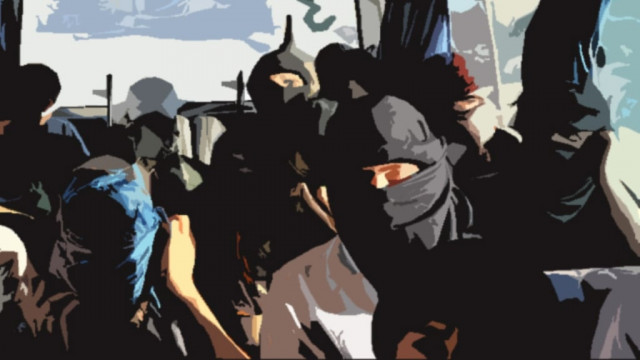US freezes assets of Haqqani members
US citizens are also barred from doing business with the three men.

US citizens are also barred from doing business with the three men. PHOTO: AFP
The Treasury Department said that Saidullah Jan, Yahya Haqqani and Muhammad Omar Zadran had been named specially designated global militants meaning that assets belonging to the men within US jurisdiction would be frozen.
US citizens are also barred from doing business with the three men.
The Obama administration has been struggling to contain the Haqqani network, which it blamed for involvement in a number of bold, high-profile attacks on US and Western interests in Afghanistan, for years.
The group is believed to be based in tribal regions of Pakistan, near the border with Afghanistan.
"Today's action underscores our resolve to continue targeting any potential means of support for the Haqqanis," David Cohen, a senior Treasury official, said in the statement.
Muhammad Omar Zadran was also named for having links to the Afghan Taliban.
In 2011, the United States' former top military official, Mike Mullen, made waves by calling the group a "veritable arm" of Pakistan's powerful intelligence service, ISI.
Some in Congress have pushed the administration in recent months to go after the network more aggressively. In November, six members of Congress, including Mike Rogers, chairman of the House intelligence committee, and Ed Royce, chairman of the House foreign affairs committee, sent Obama a letter asking him to document US steps against the group and calling efforts to date "woefully insufficient."
"We know the Haqqani network continues to plan potentially catastrophic attacks against US interests and personnel in Afghanistan," the lawmakers said in the letter, a copy of which was obtained by Reuters.
Since then, Obama administration officials have briefed Congress on the issue, but some lawmakers appear to remain dissatisfied. In December, as part of an annual defence spending bill, lawmakers required the administration to report back on its efforts to disrupt the Haqqani group.
Some US officials have been reluctant to take steps against the Haqqani network that might jeopardize the administration's ability to initiate peace talks between the Afghan government and its militant opponents.
The decision to freeze suspected Haqqani members' assets came as the Obama administration moves to wind down its 12-year-long war in Afghanistan.
This week, President Barack Obama met with senior military commanders to discuss the US military presence in Afghanistan. Officials have planned to keep a modest US force there after this year, if the Afghan government will agree to sign a bilateral security deal that authorises a foreign military presence after 2014.
Lawmakers also expressed concerns on Wednesday about how well Afghanistan would be able to combat a thriving drug trade as foreign troops withdraw. Poppy cultivation in Afghanistan, the world's largest producer of the crop used to make heroin and opium, hit an all-time high last year.
"All of our counter-narcotics efforts in Afghanistan to this point have relied heavily on a robust US military presence," Ileana Ros-Lehtinen, a Republican on the House Foreign Affairs Committee, said during a House hearing.
William Brownfield, a senior State Department official, said there had been "encouraging progress" in the ability of Afghanistan's fragile government to fight the drug trade, but added there was "no silver bullet" for dealing with the issue.



















COMMENTS
Comments are moderated and generally will be posted if they are on-topic and not abusive.
For more information, please see our Comments FAQ